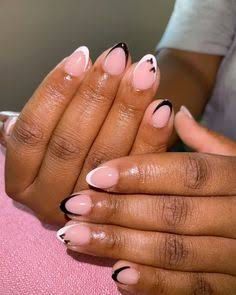Why Under-18s Should Avoid Retinol — And What They Should Use Instead
- Rejoice Nnadiugwu
- May 8
- 2 min read

In today’s world of viral skincare routines and TikTok beauty influencers, it’s easy to get swept up in the hype — especially around powerful actives like retinol. But dermatologists are sounding the alarm: retinol isn’t for everyone, and teenagers under 18 should steer clear.
What Is Retinol?
Retinol is a form of vitamin A that helps with cell turnover, unclogs pores, reduces fine lines, and improves skin texture. It’s a hero ingredient for people dealing with ageing skin, acne, or hyperpigmentation. But just because it works wonders for some doesn't mean it's right for everyone.
Why It’s Not Safe for Teens
Teen skin is different. It’s naturally more resilient, collagen-rich, and faster to heal. So when you apply a strong product like retinol, you’re not helping — you might actually be harming.
Here’s what can go wrong:
Skin Barrier Damage: Retinol is known to cause dryness, redness, and flakiness — symptoms of a compromised skin barrier.
Increased Sensitivity: Teens who use retinol too early may become prone to irritation and even develop long-term sensitivity to skincare products.
Photosensitivity: Retinol makes the skin more sensitive to sunlight, increasing the risk of sunburn and sun damage — especially dangerous in regions with strong UV exposure.
Dermatologist Dr. Ifeoma Okafor explains:
> “Teenagers don't need such heavy-duty ingredients. Their skin is still developing. Overusing retinol could lead to more harm than good — from irritation to long-term barrier issues.”
So, What Should Teens Use Instead?
Thankfully, there are gentler, more suitable options for teenage skin — especially for common concerns like acne or oily skin:
1. Benzoyl Peroxide
Fights acne-causing bacteria
Available in face washes or spot treatments
Best for: Occasional breakouts, mild acne
2. Salicylic Acid
A BHA (beta hydroxy acid) that exfoliates inside pores
Helps with blackheads and whiteheads
Best for: Oily skin, clogged pores
3. Niacinamide
Calms inflammation, brightens skin, and balances oil
Great for reducing redness without harsh effects
Best for: Sensitive or combination skin
4. Gentle Moisturizers and Sunscreen
Focus on hydration and sun protection. A basic SPF 30 or higher can do more for your skin long-term than any “miracle serum.”
Final Thoughts
Just because something is trending doesn’t mean it’s right for your skin. Good skincare is about consistency and understanding your skin’s needs, not copying every influencer’s routine.
If you’re under 18 and dealing with skin concerns, your best move is to:
Keep it simple
Be consistent
Consult a dermatologist before trying new active ingredients
Your future skin will thank you.



Comments